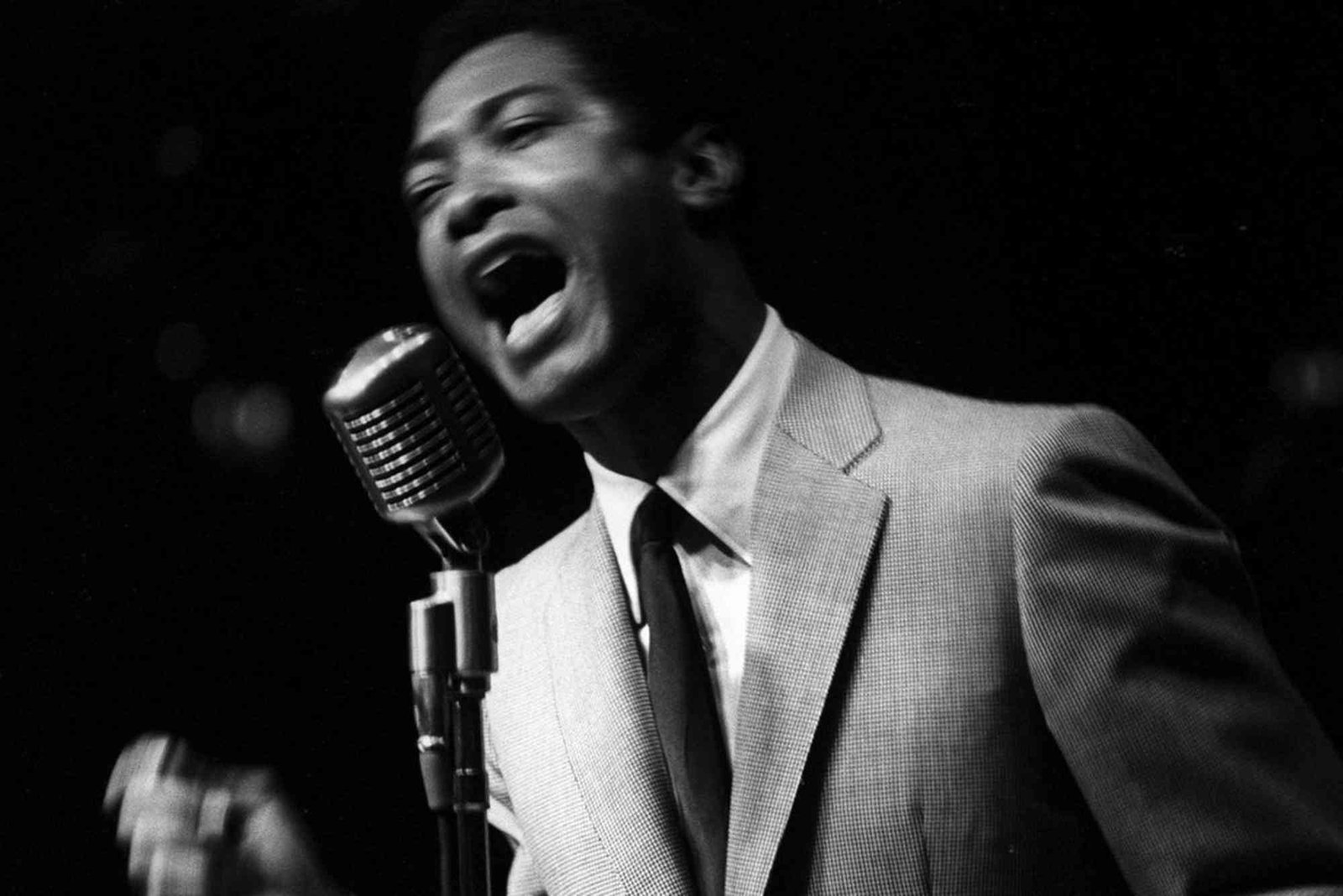Introduction
“Change Is Gonna Come” by Sam Cooke stands as one of the most powerful and emotional songs in American history. Written in 1963 and released in 1964, this masterpiece became an anthem for the civil rights movement and a timeless message of hope and resilience. In this practical guide, we’ll explore the song’s meaning, its historical context, lyrical significance, and its enduring influence on music and social change. Whether you’re a music lover, student, or simply curious about how one song could shape generations, this guide will help you understand why Sam Cooke’s work continues to inspire millions around the world.
The Origins of “Change Is Gonna Come”
Sam Cooke, often called the “King of Soul,” wrote this song after being deeply moved by personal experiences and the rising civil rights struggles in America. His encounter with racial discrimination while touring, along with hearing Bob Dylan’s “Blowin’ in the Wind,” pushed him to write something both deeply personal and universally relatable. “Change Is Gonna Come” was not just a song—it was a confession, a prayer, and a promise.
Historical Context and Cultural Relevance
In the early 1960s, America was at a crossroads. The civil rights movement was gaining momentum, but racial violence, segregation, and injustice were rampant. Cooke used his platform as a prominent Black artist to channel his emotions into music that spoke for an entire generation. The song captured the frustrations and hopes of African Americans who were fighting for equality. It quickly became a soundtrack for marches, rallies, and peaceful protests.
The song’s release in December 1964, shortly after Cooke’s tragic death, turned it into a posthumous statement of both sorrow and strength. It reminded listeners that even in the darkest times, hope was not lost—change was inevitable.
The Lyrical Meaning — A Deep Dive
The opening line, “I was born by the river, in a little tent,” immediately sets a tone of humility and roots the song in African American heritage. The river symbolizes both struggle and continuity—a metaphor for life that keeps flowing despite obstacles.
The refrain, “It’s been a long, a long time coming, but I know a change gonna come,” repeats like a mantra of faith. Cooke’s use of repetition is deliberate, reinforcing the persistence of hope even when despair feels close.
The verses touch on pain, fear, and resilience, echoing both personal and collective experiences. The line “It’s too hard living, but I’m afraid to die” captures the duality of human endurance and fear—a line that has resonated for decades beyond its original era.
The Sound and Production — Why It Still Moves Us
Unlike Cooke’s earlier upbeat hits, “Change Is Gonna Come” embraced orchestral arrangements and a slower tempo. The strings and brass blend with his soulful voice, creating an atmosphere of both sorrow and triumph. The production itself mirrors the emotional journey—from the quiet despair of the verses to the powerful swell of hope in the chorus.
This musical composition was revolutionary for its time. It proved that pop music could carry deep social messages without losing its emotional power. The song’s sophisticated structure and gospel influences gave it a spiritual undertone, connecting secular audiences with sacred sentiments.
The Social and Political Impact
When “Change Is Gonna Come” was released, it became more than a song—it became a movement. It was adopted by civil rights activists, played at rallies, and quoted in speeches. Cooke’s voice gave dignity to the struggle for equality, reminding listeners that transformation is slow but inevitable.
Even decades later, the song continues to inspire. It was performed by artists like Aretha Franklin, Otis Redding, and later by contemporary musicians such as Seal, Alicia Keys, and John Legend. Each performance renewed its message, proving that true art transcends time and culture.
Lessons from “Change Is Gonna Come”
This song teaches us several lessons that remain relevant today. First, it shows how personal pain can become a source of universal strength. Second, it reminds us that art and activism can coexist powerfully. And third, it encourages faith in progress, even when the road seems long and uncertain.
Whether you’re navigating personal struggles or societal challenges, Sam Cooke’s message still applies: patience and persistence bring change. This lesson also mirrors the strategic thinking found in fields like media planning or advertising, where persistence and timing are key. To understand this kind of structured approach to transformation, you can explore guides like What Is Media Planning In Advertising or Top Tips: What Is Media Planning. These concepts, though from a different domain, share the same foundation—vision, planning, and the belief that change is achievable through consistent effort.
The Song’s Connection to Modern Movements
In recent years, “Change Is Gonna Come” has resurfaced during times of social unrest. From protests advocating for racial equality to movements for justice and human rights worldwide, Cooke’s lyrics continue to echo. Its emotional honesty makes it relevant in any struggle against oppression.
The song’s universality lies in its core message: no matter where you are, change begins with faith and endurance. This is why it remains a staple in films, documentaries, and cultural events that aim to inspire hope.
Musical Legacy and Influence
Sam Cooke’s “Change Is Gonna Come” influenced not just soul and gospel but the entire landscape of popular music. It inspired artists like Marvin Gaye, Nina Simone, and Stevie Wonder to address social issues in their songs. Cooke paved the way for musicians to use their art as a platform for change.
The song also became a template for blending emotional vulnerability with political awareness. Many modern songs dealing with social justice—like those by Kendrick Lamar and John Legend—owe part of their emotional DNA to Cooke’s creation.
The Enduring Relevance in Today’s World
Despite being written over half a century ago, the song still speaks to today’s challenges. Inequality, discrimination, and injustice persist, but so does the spirit of resistance and hope. The song’s message continues to remind listeners that despair should never silence determination.
In the digital era, where messages spread quickly through social media and online platforms, “Change Is Gonna Come” remains a symbol of meaningful expression. The song’s endurance demonstrates the power of storytelling through music—something as relevant to today’s communication strategies as to 1960s activism. If you want to explore how impactful storytelling functions within media and advertising, even through formats like What Is Video Advertising — A, the lessons from Cooke’s approach remain powerful: connect emotionally, stay authentic, and deliver a message that matters.
The Artist Behind the Anthem
Sam Cooke wasn’t just a singer—he was a visionary. Born in 1931, he rose from gospel roots to mainstream fame. His career reflected his desire to bridge cultures and communities through music. Cooke’s untimely death in 1964 at only 33 years old shocked the world, but his legacy has lived far beyond his years.
He was one of the first Black artists to demand ownership of his music and publishing rights, setting a precedent for future generations. This pursuit of autonomy paralleled his lyrical advocacy for freedom and equality.
How “Change Is Gonna Come” Inspires Personal Growth
The song’s message can also apply to personal transformation. Everyone faces moments of uncertainty, hardship, and doubt. Cooke’s lyrics remind us that these struggles are temporary and that perseverance leads to growth.
When we apply this mindset in our personal or professional lives, we find the courage to adapt and move forward. Whether you’re dealing with personal loss, professional setbacks, or emotional struggles, “Change Is Gonna Come” provides emotional guidance—a reminder that no darkness lasts forever.
FAQs
Who originally sang “A Change Is Gonna Come”?
The song was written and performed by Sam Cooke in 1963 and released posthumously in 1964.
What inspired Sam Cooke to write “A Change Is Gonna Come”?
He was inspired by his experiences with racism and by hearing Bob Dylan’s “Blowin’ in the Wind.”
What message does “Change Is Gonna Come” convey?
It expresses faith, perseverance, and hope in the face of adversity—a belief that better days are ahead.
How did the song impact the civil rights movement?
It became an anthem of hope, frequently played during marches and rallies across America.
Why is “Change Is Gonna Come” considered timeless?
Its emotional truth and universal message of hope continue to resonate with each generation.
“Change Is Gonna Come By Sam Cooke — A Practical Guide” is more than a reflection on a single song—it’s an exploration of how music can change hearts and societies. Sam Cooke’s timeless anthem remains a beacon of hope, reminding us that patience, courage, and faith always lead to transformation.
As you move forward in your own journey, whether personal or professional, remember that change may take time, but it always arrives. Listen to Sam Cooke’s message, feel the emotion, and let it guide you through life’s challenges.
If this guide inspired you, take a moment to listen to the song again—with a deeper understanding of its message. Let it remind you that no matter how long the night, the dawn is always near. Change is indeed gonna come.




